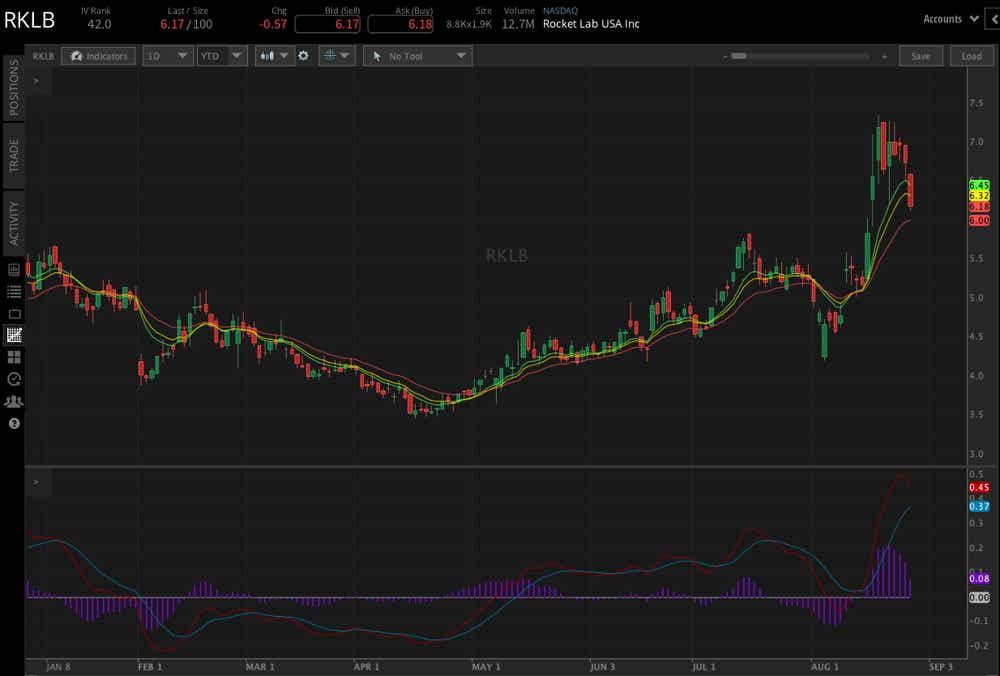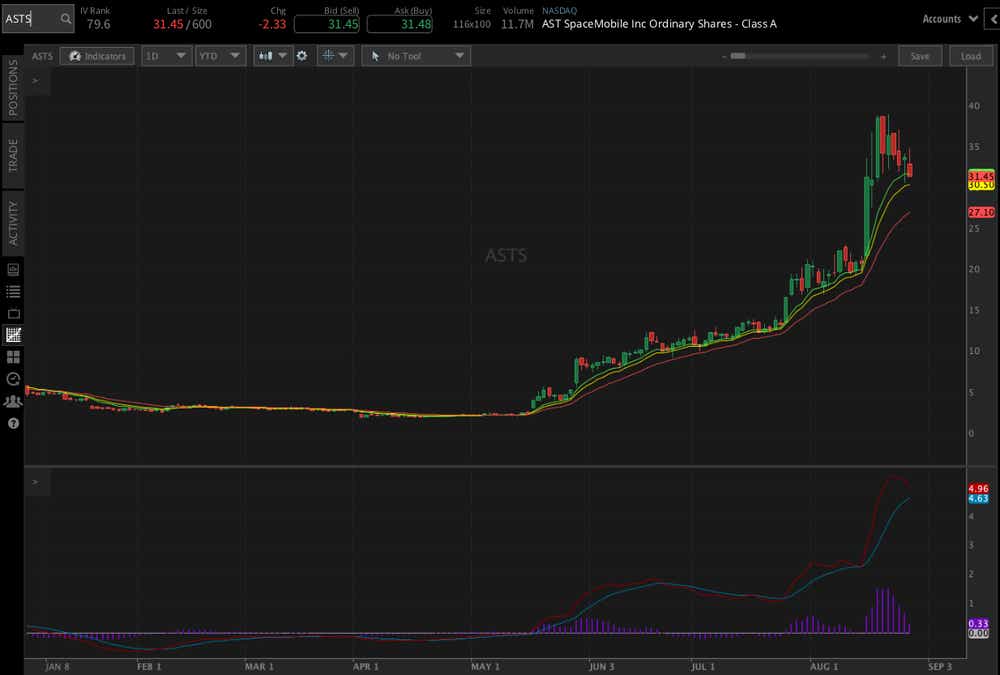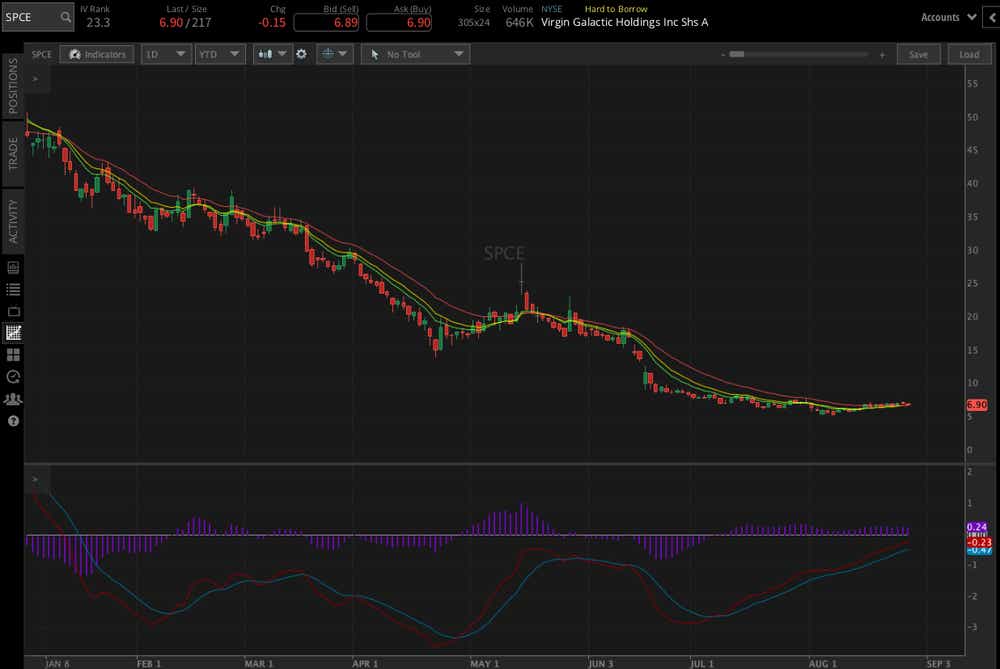The Era of Commercial Space Travel Is Upon Us

The Era of Commercial Space Travel Is Upon Us
- The space industry is seeing major growth as investment grows.
- But are Rocket Lab, AST SpaceMobile and Virgin Galactic primed for gains?
- Here are the top space stocks to watch in September.
Until recently, governments dominated the space industry. The United States has been perhaps the most influential player, with the National Aeronautics and Space Administration (NASA), taking lead role in space exploration.
But the private sector is advancing in the new era of space travel. SpaceX has pioneered this push, proving, against great odds at times, that commercialization of the Final Frontier is viable. The jump to commercialization has opened up a new era of private investment in the industry.
While SpaceX remains a private company there are plans for an initial public offering (IPO) but that likely won’t come until 2025 at the soonest. However, other companies are effectively penetrating the broader space industry. In this article, we’ll take a look at some of these companies, all of them publicly traded and easy to invest in.
Rocket Lab USA
Rocket Lab USA (RKLB), an American aerospace manufacturer specializing in small satellite launch services, was founded in 2006. It’s Rocket Lab is based in California and makes cost-effective rockets to launch small payloads into Earth orbit.
RKLB’s flagship product is the Electron, a small launch vehicle that has successfully deployed nearly 200 satellites since 2017. Like SpaceX rockets, the Electron has a reusable rocket, lowering costs and reducing the time required between launches.
Rocket Lab reported earnings in August that showed a 70% increase in sales and signaled strong demand for launches. The next generation launch platform, the Neutron, is expected to debut in 2025. RKLB launches over half of all orbital vehicles sent into space in the United States outside of SpaceX. The company is positioned to capture much of the growth in the industry.

AST SpaceMobile
AST SpaceMobile (ASTS) is developing a novel space-based broadband network through a constellation of low Earth orbit (LEO) satellites. They will effectively function as cell towers in space.
That technology will work in areas where conventional infrastructure capabilities are unable to provide coverage. The technology competes with a similar offering from SpaceX, but AST has managed to achieve much higher speeds than what’s possible with the satellites used by SpaceX. You can already smell the potential for a buyout in the not so distant future.
ASTS has had a phenomenal 2024 so far, with the stock price up over 400%. At a market cap of $8.5 billion, there is still plenty of upside considering the huge size of the market the market for space-based communication systems.

Virgin Galactic Holdings
Virgin Galactic Holdings (SPCE) provides space tourism services and suborbital launch services geared mainly toward scientific research. The company was founded by Richard Branson and Virgin Group has a large stake in the company.
Space tourism is the newest frontier in the tourism industry, with tickets for a Virgin Galactic voyage fetching nearly $1 million per flight. That is up a lot from its initial prices that were around $250,000 per ticket. While revenue has grown recently, profitability hasn’t impressed investors. SPCE still isn’t making money.
Because of that, the stock price is down about 80% since the start of the year. Investors simply are not rewarding any progress by the company, while being relentless on punishing the bad news. This beaten-down stock may offer a value buy over the long-term if you believe the company can find a more prosperous path to reach the stars.

Thomas Westwater, a tastylive financial writer and analyst, has eight years of markets and trading experience. @fxwestwater
For live daily programming, market news and commentary, visit tastylive or the YouTube channels tastylive (for options traders), and tastyliveTrending for stocks, futures, forex & macro.
Trade with a better broker, open a tastytrade account today. tastylive, Inc. and tastytrade, Inc. are separate but affiliated companies.
Options involve risk and are not suitable for all investors. Please read Characteristics and Risks of Standardized Options before deciding to invest in options.